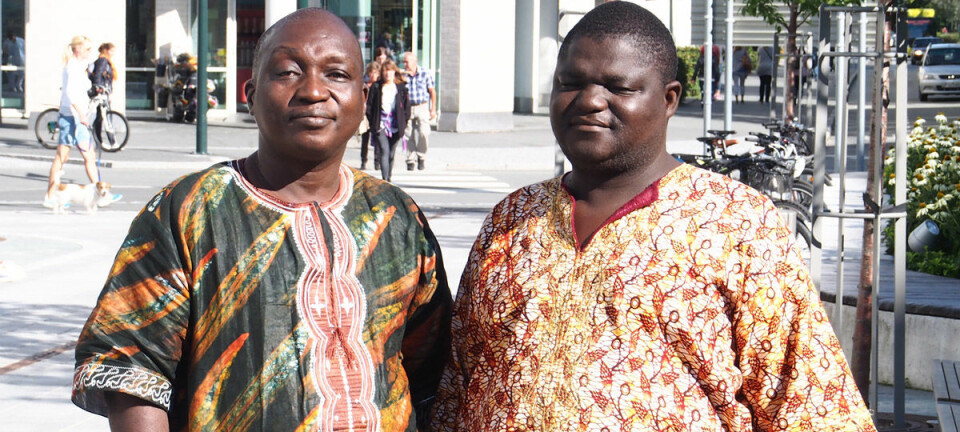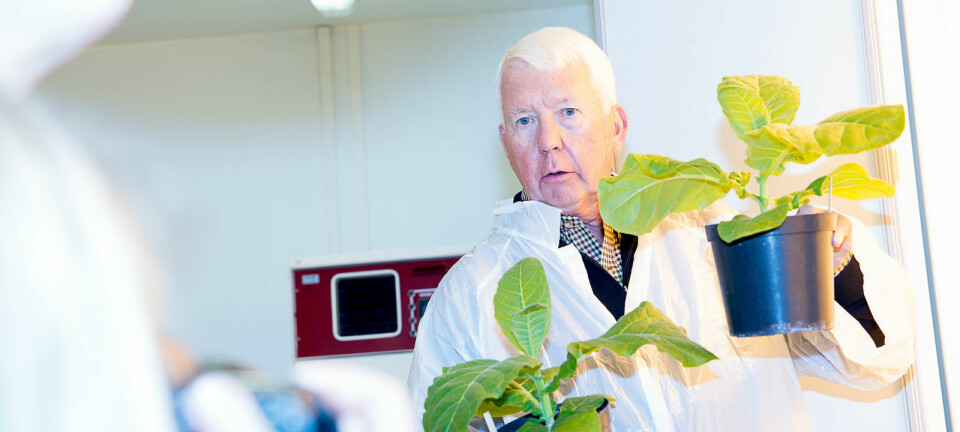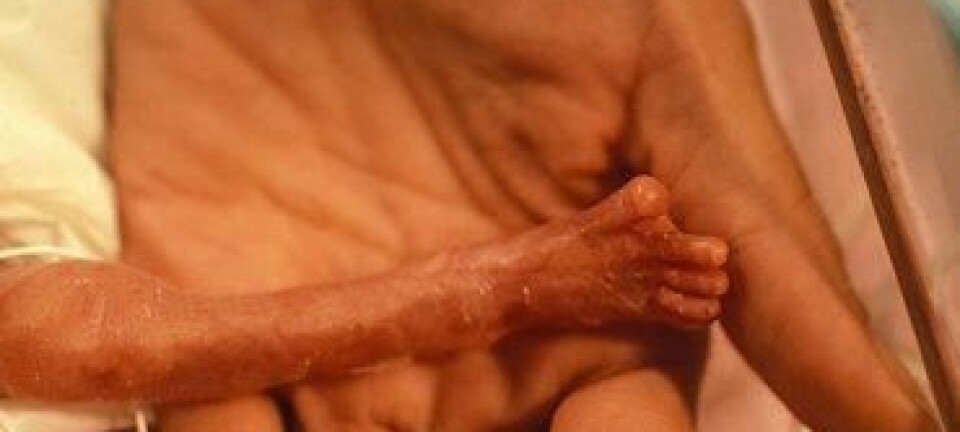
Danish doctors: saving Ebola patients could be this simple
Thousands of Ebola patients could be saved if they were offered simple treatment consisting of salts and fluids, say Danish doctors.
A serious outbreak of the Ebola virus is currently raging in West Africa and the general belief is that no effective treatment is available for the menacing disease.
However, this is not correct, says Professor Anders Perner from Copenhagen University Hospital, Rigshospitalet.
In a comment in The Lancet, he points out that many African Ebola patients could be saved if they were treated with electrolytes (salts) and fluids.
"It has taken us too long to acknowledge that we could save a lot of lives in West Africa by very simple means,” says Perner, who is an internationally recognised expert of intravenous treatments with fluids at the Intensive Therapy Clinic at Rigshospitalet. “Many Ebola patients could be saved with an optimal treatment with salts and fluids.”
Ebola victims die from dehydration
Perner believes that many Ebola patients die because the virus drains them of fluids and salts.
"When you read the descriptions of Ebola patients' symptoms, they indicate that patients suffer from severe diarrhoea and vomiting. They lose a total of up to ten litres of fluid every 24 hours,” he says and explains that blood samples also indicate that patients’ salt and fluid levels drop to levels normally considered life-threatening.
Western treatment saves Ebola
Perner points out that Ebola patients who come to the West where they receive intravenous treatment face a substantially lower mortality rate than patients treated in West Africa.
"In the west, the Ebola mortality rate is probably as low is 15 per cent. That’s at least three times lower than in West Africa,” says Perner. “From this, we can deduce that a more systematic and aggressive fluid and salt treatment would be likely to have a positive effect on the mortality rate in West Africa.”
Professor Lars Østergaard from Aarhus University Hospital, one of Denmark's two reception centres for Ebola patients, backs Perner's statements regarding a salt and fluid treatment.
"Considering how many patients survive Ebola when they’re flown to Western Europe or the US, it’s a completely different situation than that in West Africa,” says Østergaard. “In West Africa, the death rate is between 60 and 90 per cent whereas it’s closer to 15 per cent here in Western Europe.”
A salt and fluid treatment, he says, could well be one of the explanations for this difference.
Like Perner, Østergaard believes that a treatment with salts and fluids could save lives in West Africa.
"I'm sure it would, although it remains to be proven medically -- I’m convinced so,” he says.
"They can’t evaluate patients' fluid and salt balances in Africa but they do know that that haemorrhaging and fever in a hot climate causes salt and salt problems,” says Østergaard. “If you have these problems there is a huge risk of you dying.”
Wrong focus in the fight on Ebola
Perner and six other internationally acclaimed scientists at Rigshospitalet are calling on the World Health Organisation (WHO) to recognize the potential of a salt and fluid treatment for Ebola patients.
"It’s WHO who can act and I don't understand why they haven't responded,” says Perner. “Maybe they believe it would be difficult to provide this kind of advanced fluid treatment but I don't believe it would.”
"There are of course obstacles when it comes to providing optimal fluid treatment in the West African health system. But we can handle these are obstacles scientifically and systematically," he says.
Perner says that until now WHO and the world community have focused too strongly on developing vaccines, anti-viral medication, and blood serum, all of which are potentially beneficial measures against Ebola.
"We need to develop vaccines and other treatments -- but this will takes months and it's not certain they'll work,” says Perner. “I think it's risky to give sole priority to advanced treatments. We can save lives here and now with salt and fluid treatment.”
-------------
Read the original story in Danish on Videnskab.dk
Translated by: Hugh Matthews









